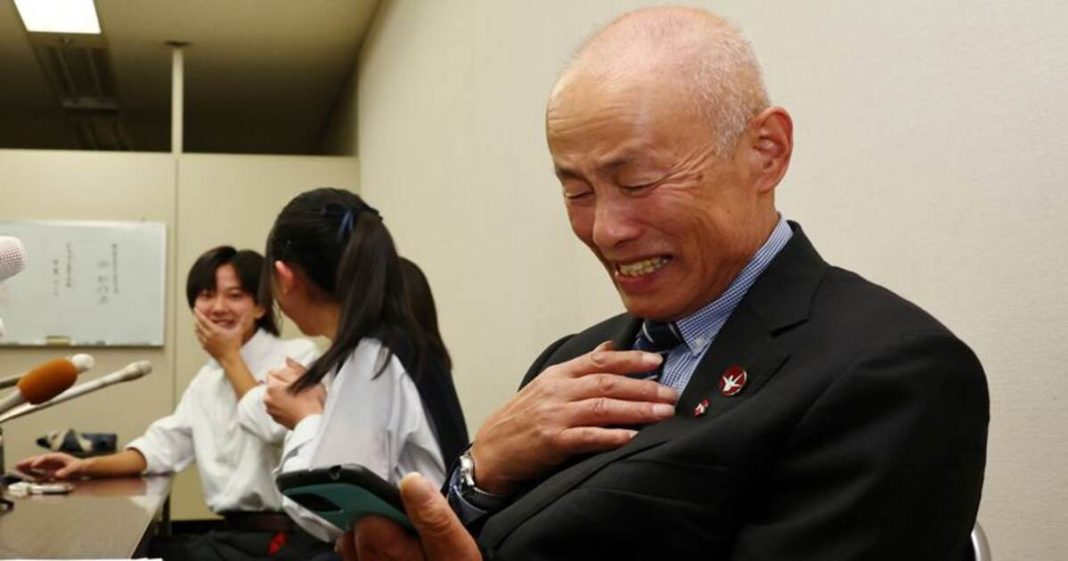Nihon Hidankyo, a grassroots organization representing survivors of the atomic bombings of Hiroshima and Nagasaki, has been awarded the 2024 Nobel Peace Prize. The Norwegian Nobel Committee recognized the group, also known as the Hibakusha, for its tireless efforts to promote a nuclear-free world. This award serves as a powerful reminder to nuclear-armed countries about the devastating consequences of such weapons.
Read More: Longest-serving death row prisoner acquitted in Japan after 56 years
The group’s first-hand witness testimony and lifelong dedication to raising awareness about the horrors of nuclear war have made it a beacon in the global disarmament movement. Members of the Hibakusha, many now in their eighties, have lived through the only two nuclear bombs ever used in conflict, dropped by the United States in August 1945.
Testimony to Suffering and Resilience
The Hibakusha have dedicated their lives to sharing the unimaginable pain and destruction caused by nuclear weapons. They recount their experiences to global audiences, in a bid to prevent future nuclear catastrophes. “Hibakusha help us describe the indescribable, to think the unthinkable, and to somehow grasp the incomprehensible pain and suffering caused by nuclear weapons,” said the Nobel Committee in its citation.
Over the years, Nihon Hidankyo has played a crucial role in raising awareness about the consequences of nuclear weapons, promoting education, and advocating for global disarmament. As the survivors of Hiroshima and Nagasaki pass on, the legacy they leave behind is one of resilience and commitment to peace. The award is particularly poignant as next year marks the 80th anniversary of the bombings, which claimed over 200,000 lives in the two Japanese cities.
Nuclear Taboo Under Threat
The Nobel Committee’s decision to award the prize to Nihon Hidankyo highlights growing concerns that the post-WWII “taboo” against the use of nuclear weapons is weakening. The Committee’s chair, Joergen Watne Frydnes, emphasized that modern nuclear arsenals have far greater destructive power than the bombs dropped in 1945. He warned that a nuclear conflict today could kill millions and have catastrophic effects on the global climate.
The alarming rhetoric from nuclear-armed nations, including Russia’s President Vladimir Putin’s threats to use tactical nuclear weapons in the Ukraine conflict, has reignited fears of nuclear war. Additionally, North Korea’s continued development of nuclear capabilities and tensions between India, China, and Pakistan further compound global concerns. This prize serves as a stark reminder of the urgent need to reinforce the nuclear taboo.
Global Call to Action
While Nihon Hidankyo’s efforts have been recognized globally, Japan itself has been criticized for its reliance on the U.S. nuclear umbrella. Japan has not signed the 2021 Treaty on the Prohibition of Nuclear Weapons, which over 60 countries have ratified. However, the recognition of Hibakusha’s work highlights the growing global consensus for the abolition of nuclear weapons.
Read More: More than 95,000 Japanese aged over 100, most of them women
Toshiyuki Mimaki, the 81-year-old co-chair of Nihon Hidankyo, expressed hope that the award would amplify the group’s message. “It would be a great force to appeal to the world that the abolition of nuclear weapons can be achieved,” he said. Mimaki also dispelled the notion that nuclear weapons bring peace, warning that if nuclear weapons were used by countries like Russia or Israel, the consequences would be global and devastating.














